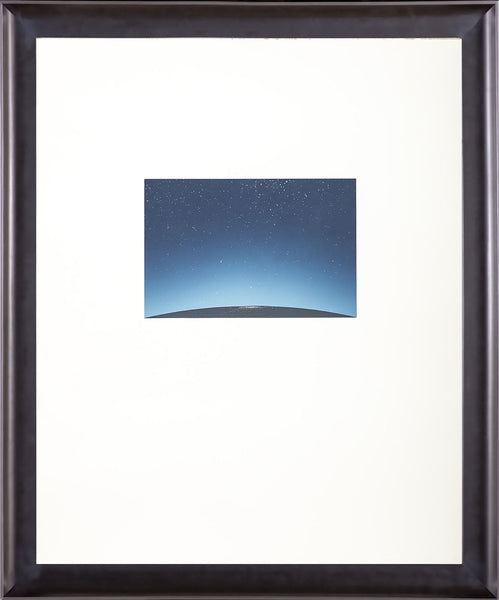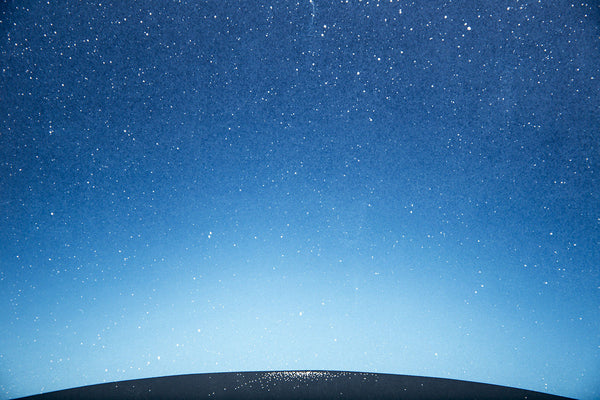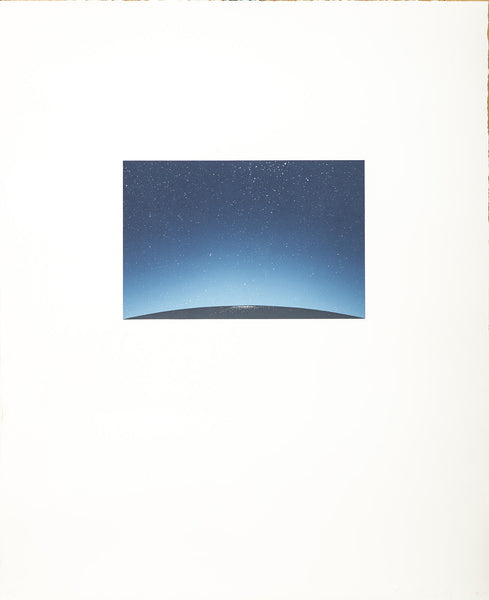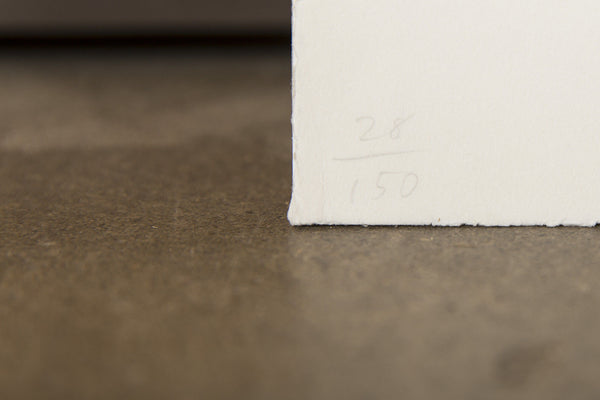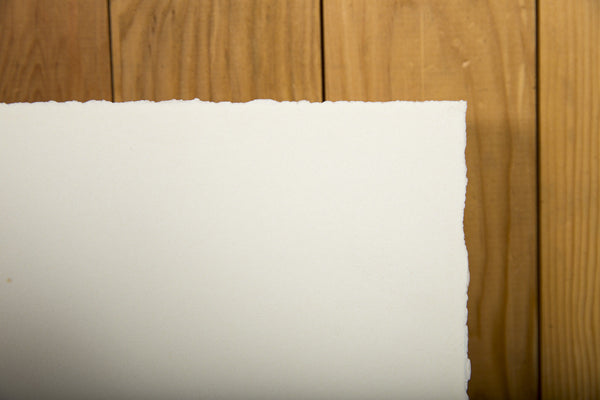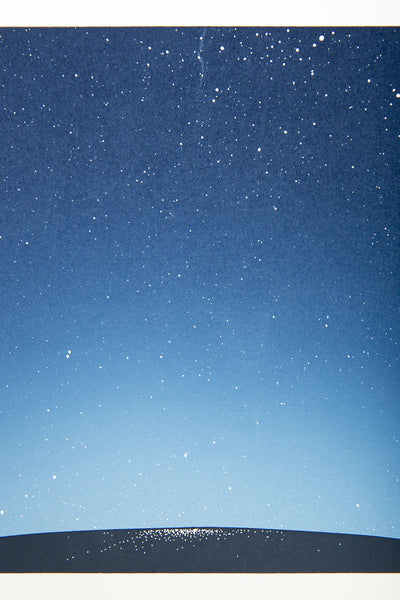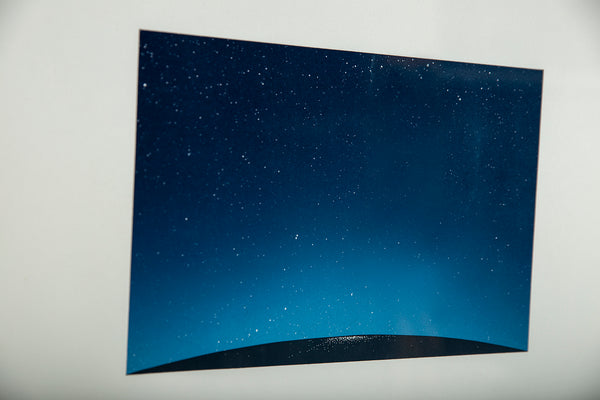Ed Ruscha
Any Town in the U.S.A. Signed Limited Edition Museum Condition - Rare
Description
Artist: Ed Ruscha - Any Town in the U.S.A.
Medium: Screenprint in color on white Stonehenge, 1981
Edition: 28/150 (33 Artist’s Proofs precede the edition)
Signed and dated in pencil, full margins
Published by the artist for the re-election campaign of Ohio Senator, Howard Metzenbaum
Printer blindstamp - Wasserman Silkscreen Co., Santa Monica
Image size: 8 x 12 inches
Sheet size: 30 1/16 x 24 1/8 x inches
Frame size: 32 1/4 x 26 1/4 x 1 1/4 inches
Lit. [Enberg, 115]
For over 50 years, Ed Ruscha has been capturing the shifting emblems of American life, echoing the expansive Western landscape and optimism unique to postwar America. Reflecting Ruscha’s unique language of cinematic codes, the work “Any Town in the U.S.A.” is as accessible as it is profound.
It shows a section of the earth backlit by a blue night sky full of stars. The cluster of tiny lights at the tip show, as the title notes, any town in the USA, emphasizing the anonymity of contemporary American life. Ruscha suggests that, when viewed on a grand scale, any city resembles one another in its artificial luminescence, generic aspects of urban landscape and embedded cultural symbols.
At the same time, the universality of “Any Town in the U.S.A.” carries a strong political message. The screenprint has been issued as part of the re-election campaign of Howard Metzenbaum, a liberal Ohio Senator and a representative of the Democratic Party. Introducing a different kind of equality, the artist highlights the importance of each town in the vernacular of contemporary American reality.
Both heroically expansive and irreducibly straightforward, “Any Town in the U.S.A.” fuses two seemingly conflicting ideas. The simultaneous glorification and critique embedded in this work create a duality characteristic of the Ruscha’s oeuvre.
***
The piece comes in professional, safe packaging. Certificate of Authenticity included. Free shipping.
Collect art in a smart way!
Select our Best Offer option to propose a price.
The first bidder to meet the bottom line price wins.
***
About Ed Ruscha
Fascinated by the homogenous geometry of the American urban landscape, Ed Ruscha has built one of the most distinctive bodies of work in the history of 20th-century art. Frequently associated with the Pop Art movement or Conceptual art, Ruscha’s work is impossible to categorize, as it taps into all of the major artistic and philosophical movements of its time while retaining a completely original message. The individuality of his art is reflected within his idiosyncratic aesthetic, based on the banal Californian cityscape, cultural cliches, and deterioration of language, rounded with the sharp usage of typography and innovative painting materials such as gunpowder, blood or Pepto Bismol.
Although he has always seen himself primarily as a painter, Ruscha has created a significant body of work in photography and printmaking. His photography books from the 1960s and 1970s are today considered paramount artistic commentaries on the cinematic and popular culture of the time. His most influential photographic volume “Twentysix Gasoline Stations” from 1962 encapsulates all of the vital elements of his style, from geometry and utilitarianism of the architecture to consumerist and peculiar elements of the Los Angeles cityscape. He also specialized in etching, lithography, and screenprinting, creating numerous series of multiples over time. Permeating every media without losing a shred of its power, Ruscha’s visual language was lauded for its clarity and depth. “Art has to be something that makes you scratch your head,” he said at one point, explaining both the choices for his accessible visuals and profoundly symbolic and contemplative concept.
Due to his unique style and great influence, Ed Ruscha has become a favorite among collectors. His works make part of many private collections worldwide and are included in the UBA Art Collection and the collections of LACMA, SFMOMA and The Broad Museum. His photographs and multiples are considered highly desirable items both in auction rooms and galleries.
Born in 1937 in Omaha, Nebraska, Ed Ruscha moved to California in the 1950s pursuing education. He is based in Culver City, a part of Los Angeles.
